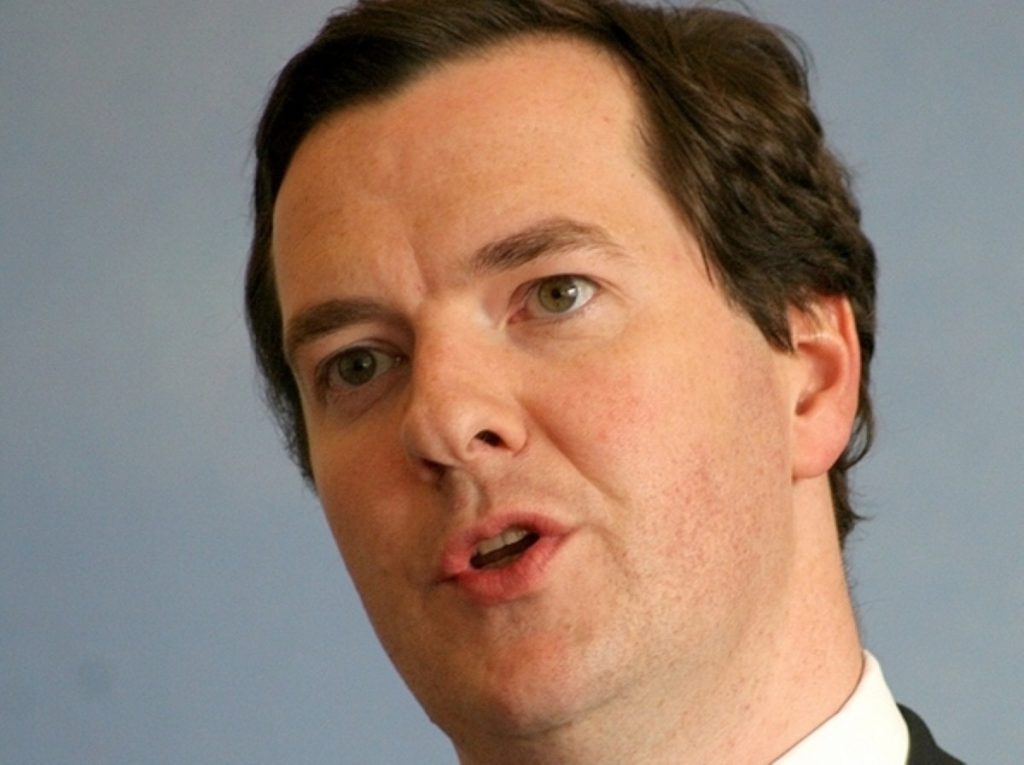Analysis: Is Osborne the weak link?
The shadow chancellor is the centre of Labour’s attacks. Is that wise?
By Ian Dunt
Slowly but decisively the spotlight turns on Osborne, and he sweats beneath it. There was always a superficial problem with the shadow chancellor, an aesthetic problem. He is simply not likeable. The way he laughs is not likeable, and the way he attacks is not likeable. He has the politically appalling combination of a chip on his shoulder and a posh voice. He seems young and inexperienced just when the public want safety and reliability: the local bank manager.
Labour thinks it has found the weak link in the Tory machine. Osborne did little this week to dispel that impression. The proposal to cut income tax was highly problematic. Even if the Tory sums were perfect, which few analysts believe they are, the tax cut negated the political image Osborne had delivered at the party conference: he would be honest and truthful about what was coming. Instead, it looked like cheap electioneering.


The decision to cost it using departmental efficiency savings the Tories had themselves derided days earlier when Labour tried to pull the same trick was borderline laughable. By the time business leaders came out in support of the policy today, you could actually see the relief on David Cameron’s face.
Even with today’s letter, the policy reveals that Cameron and Osborne are not quite the masters of the dark arts he believed them to be. But Labour should be cautious. Osborne is not weak, and he should not be underestimated.
He had his fingers burned during the Deripaska affair, when a series of private conversations between him and Peter Mandelson turned into a national scandal. That experience will have taught him not to take on Lord Mandelson without making sure everything is in place. On one particular afternoon, you could see the fear on his face as he approached the braying media pack, hunting for his blood. They didn’t get it. Osborne survived, and politicians who survive become more dangerous enemies.
Secondly, he has political judgement. The inheritance tax cut caused Brown to back down on his election plans and set in stone an impression of the prime minister which stressed his dithering and indecision. But there are clearly weaknesses to Osborne’s (and Cameron’s) political instinct. The real genius would have been to U-turn on the inheritance tax cut policy during the financial crisis, when U-turns were positively encouraged by a media which was coming to terms with the scale of the situation. Then, the Tories could have portrayed themselves as responsible and just, and neutralised Labour’s entire line of attack at this election: that they will rule for the few while Labour rules for the many.
The third concern over Labour’s attack on the Tories is simply that it seems desperate. It should be attacking the party leader, not the shadow chancellor. It seems weird and desperate.
But then, the Tories made the deficit the centre of the campaign, and then provided a problematic narrative as it hotted up. The maths doesn’t work. ‘Deficit reduction’ plus ‘a ring-fenced NHS’ plus ‘last-minute tax cuts’ adds up to something which feels like an error.
The Tories allowed Osborne to paint a target on himself, but should Labour really take the shot?












